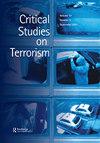Problematizing Law, Rights and Childhood in Israel/Palestine
IF 2.5
Q2 POLITICAL SCIENCE
引用次数: 0
Abstract
citizenship” (69), while also exposing the hypocrisy of liberal Britain as a global civilising force. Chapter three draws upon the same sorts of materials examined in chapter two, and on a subject that, as in the case of torture in Madras, has received considerable scholarly attention, the 1865 Morant Bay Uprising in Jamaica, during which military forces tortured and killed British Afro-Jamaican subjects over the course of a month-long period of martial law. It concentrates, however, not on those tortured during the uprising, but on the under-studied perpetrators of such torture, and the role of torture in undermining their claims to liberal citizenship. The problem for the perpetrators of such violence, Anderson notes, was that “torture could foreclose the possibilities of citizenship rather than opening them up” (73). Twisted Words continues its important focus on perpetrators in chapters four and five, which explore what happens when civilian, rather than military, citizen-subjects take up the mantle of the state by attempting to assert, or reassert, their sovereignty through the use of torture – in chapter four, in the family home, and in five, in two settler colonial contexts (in Oceania and southern Africa). These chapters demonstrate how, in addition, understandings of torture expanded to include psychological violence as a form of “domestic terrorism” (15). Returning, again, to fiction, in chapter four Anderson examines works by writers such as George Meredith, George Eliot and Anthony Trollope to elucidate the ways in which unchecked sovereign power by husbands over their wives – who, like colonial subjects, were positioned uncertainly between subjecthood and citizenship – was critiqued by such writers as a danger not only to the bodily well-being and liberal subjectivity of husbands, but to the modern state as well. In chapter five, in contrast, Anderson examines works of fiction by authors such as Louis Becke, Bertram Mitford and W. C. Scully, which demonstrate the brutal reality of life under liberalism in settler colonies through portraying British men who enacted vigilante terrorism against indigenous subjects as rogue citizens of empire who “appropriate the state-of-emergency rhetorics originally invoked by the British state to sanction torture in reaction to perceived social crises” (16). Like the torturing husband, such men ultimately, therefore, served to draw attention to the nature of state terrorism, and in the process to undermine it. Such a function is served, in turn, by Anderson’s excellent book, which will prove of value to scholars in a wide range of disciplines.以色列/巴勒斯坦的法律、权利和儿童问题
(69),同时也揭露了自由主义英国作为全球文明力量的虚伪。第三章借鉴了第二章所考察的相同类型的材料,并讨论了一个主题,与马德拉斯的酷刑案例一样,受到了相当多的学术关注,即1865年牙买加的莫兰特湾起义,在长达一个月的戒严令期间,军队折磨和杀害了英裔牙买加人。然而,这本书的重点并不是那些在起义期间遭受酷刑的人,而是那些对这种酷刑的肇事者进行了充分研究的人,以及酷刑在破坏他们对自由公民身份的要求方面所起的作用。安德森指出,这种暴力行为的肇事者面临的问题是,“酷刑可能会阻止而不是打开公民身份的可能性”(73)。《扭曲的话语》在第四章和第五章中继续对肇事者进行了重要的关注,这两章探讨了当平民而不是军队,公民主体通过使用酷刑,试图维护或重申他们的主权,从而承担起国家的衣袍时,会发生什么——第四章是在家庭中,第五章是在两个移民殖民背景下(大洋洲和南部非洲)。此外,这些章节还展示了对酷刑的理解是如何扩展到将心理暴力作为一种“国内恐怖主义”的形式(15)。再次回到小说,在第四章中,安德森考察了乔治·梅雷迪思、乔治·艾略特和安东尼·特罗洛普等作家的作品,以阐明丈夫对妻子不受约束的主权权力是如何被这些作家批评的——妻子就像殖民地的臣民一样,被定位在主体性和公民权之间——不仅是对丈夫身体健康和自由主体性的威胁,也是对现代国家的威胁。相比之下,在第五章,安德森考察了路易斯·贝克、伯特伦·米特福德和w·c·斯库利等作家的小说作品,这些作品通过将英国人描绘成帝国流氓公民,对土著居民实施义务警察恐怖主义,展示了自由主义下移民殖民地生活的残酷现实,这些人“盗用了英国政府最初援引的紧急状态修辞,以制裁酷刑,以应对所意识到的社会危机”(16)。因此,这些人最终就像那个折磨人的丈夫一样,让人们注意到国家恐怖主义的本质,并在这个过程中破坏它。反过来,安德森这本优秀的书也起到了这样的作用,它将证明对许多学科的学者都有价值。
本文章由计算机程序翻译,如有差异,请以英文原文为准。
求助全文
约1分钟内获得全文
求助全文

 求助内容:
求助内容: 应助结果提醒方式:
应助结果提醒方式:


